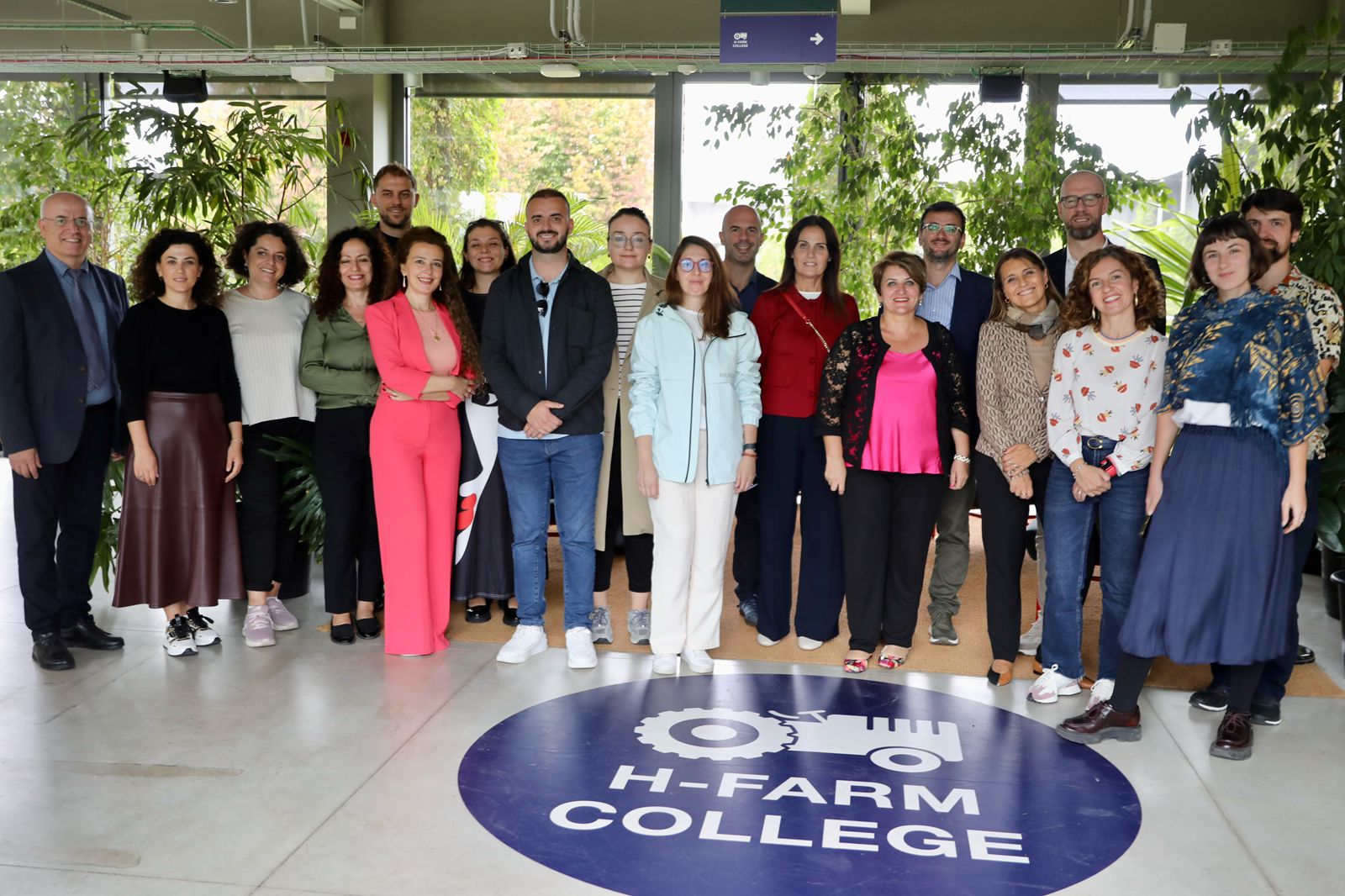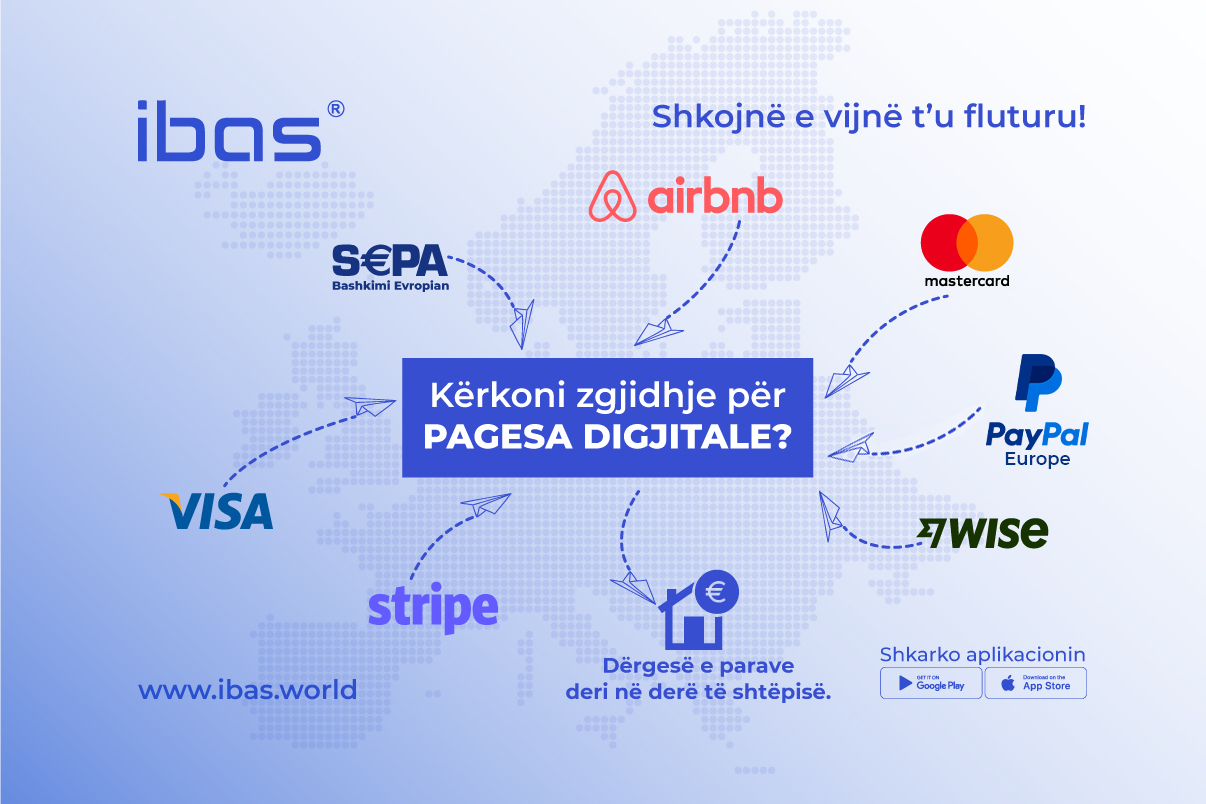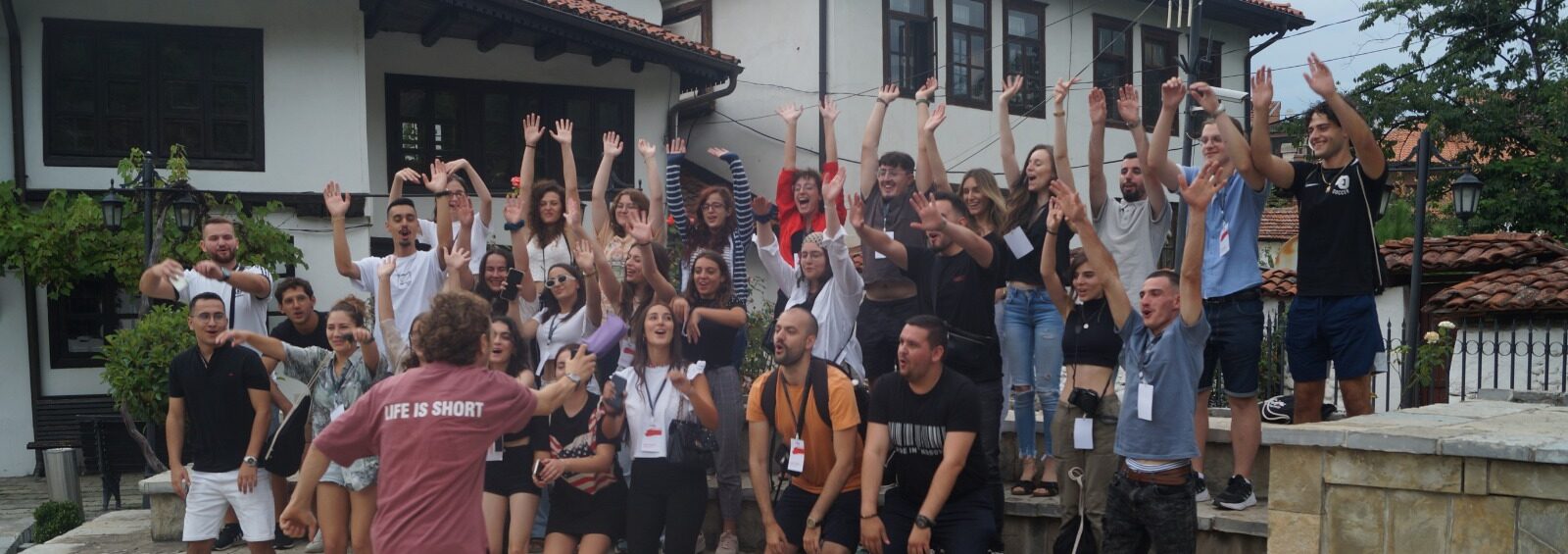GERMIN in cooperation with the World Bank Albania organized the virtual meeting: Remittances – a trace for development. This event brought together 38 participants in ZOOM and over 20 on Facebook Live from Albanian members of the diaspora and key stakeholders involved in remittances to Albania.
Lirim Krasniqi, GERMIN, welcomed everyone and stressed the importance of remittances. “Remittances account for over 10% of Gross Domestic Product inAlbania and are a major source of income for many households. However, despite these numbers, remittances are failing to have the maximum effect on the economic development of their countries.”-said Mr. Krasniqi.
Edlira Dashi, according to statistics, remittances make up 1/3 of the budget of Albanian families and 30% of Albanian families receive remittances regularly, while 40% receive financial assistance from their relatives abroad in special cases. Further, Mrs. Dashi stressed that according to statistics, remittances are mostly used for consumption and personal care (67%), health expenditures (52%) and education (32%). In terms of value, the average amount received in a year is equivalent to USD 2,350, or USD 499 per transaction, ranking Albania second only to Kosovo. Most remittance flows come from Greece and Italy (over 60%).
Fatos Cocoli, expert on economic affairs at the Ministry of Diaspora stated three main needs. First, encourage and increase the transfer of money from the diaspora through formal channels. Second, the orientation regarding spending this money more effectively and lastly, to be able to attract new diaspora savings in the country’s banking or investment channels.
The discussion was then focused on the audience which was engaged throughout the meeting on the chat.
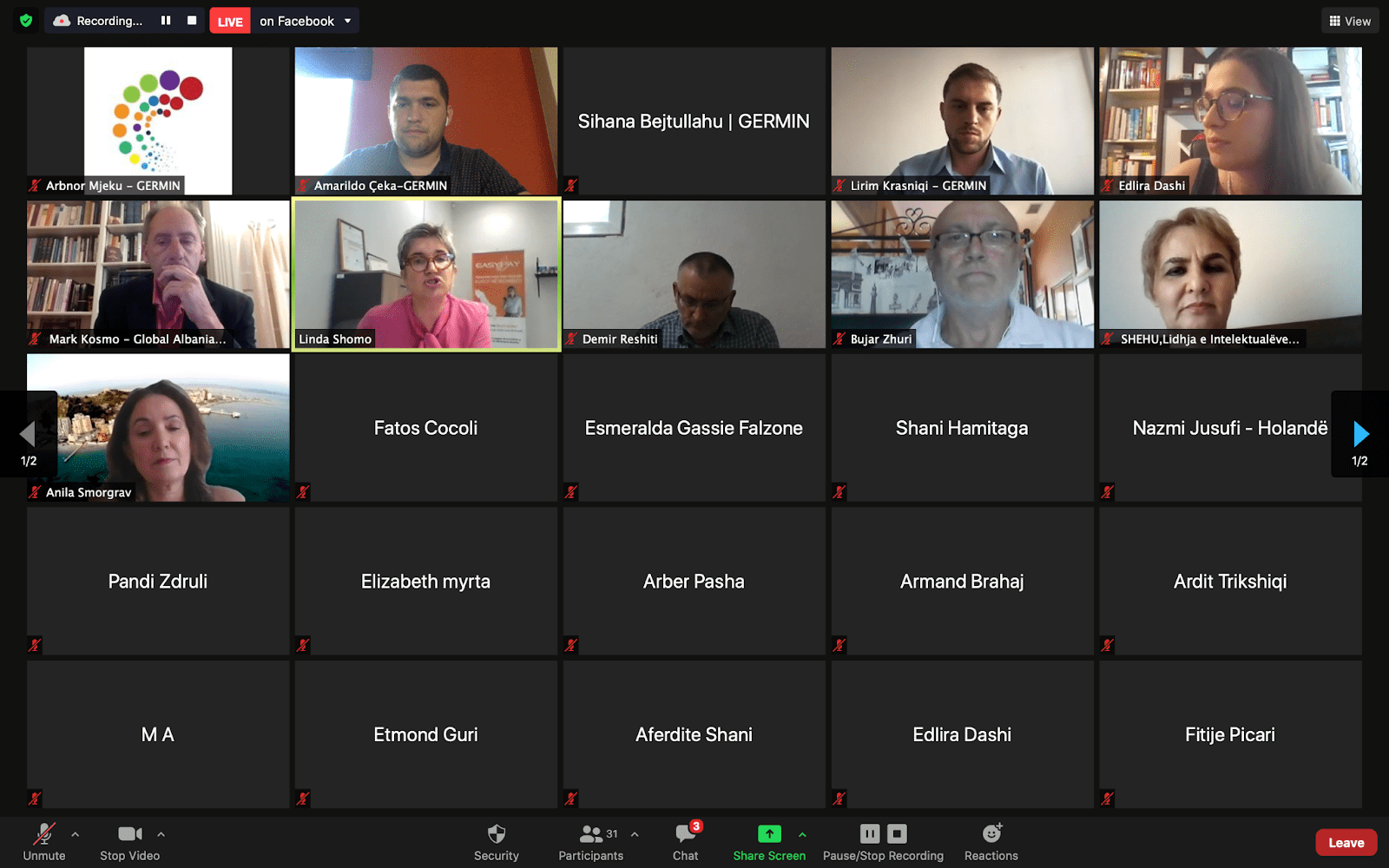
Linda Shomo,
In order not to repeat the speakers who reflected on the problems with which I am familiar, I would like to mention three important points. Important is the story with Covid and the crisis we went through in 2020, but the positive phenomenon throughout this crisis was resilience. So, although it was expected that due to the crisis there would be a decrease in remittances, this did not happen and such a phenomenon was on a global scale. The second positive element from the situation caused by Covid was the increase of remittances in their sewerage in formal ways due to the inability of migrants to move. And the third positive element caused by the Covid situation was technology, where the main focus was on mobile money transfer.
EasyPay is an electronic money institution in Albania and we have entered the remittance market in remittances, since 2016, through the partner Ria Money Transfer. Easy pay is ria money transfer partner for Albania. Ria is the third largest operator in the world in terms of money transfers. I would like to highlight the Mobile app as Ria has moved towards technology in two types of channels. One is the channel of strategic connections globally with other global operators. So is the online channel, Ria app which has done quite well and has quite competitive figures.
Challenges: from a business point of view – a challenge that directly affects is the lack of a Euro-Switch so that Euro transfers from one bank to another are very expensive.
Mark Kosmo,
There are two issues I would like to mention. First I think a problem with remittances is that the need for remittances today is different from how it was e.g. 20 years ago. Therefore, a challenge for Albania will be the lure of remittances as they will no longer have such a personal character. Investment funds, philanthropy or private investment would be elements that would help. But for this to happen, the legal conditions and the conditions for investment in Albania must change. The second problem is the high cost of sending remittances to Albania. The financial system blocks many companies from abroad from cooperating with Albania for money transfers. One solution to this problem may be Debit-Card. I also personally solved this by using a company that I have used before called Transfer-Wise and in this way you can send dollars to a dollar account in Albania and the cost is less than half the cost of a transfer ordinary.
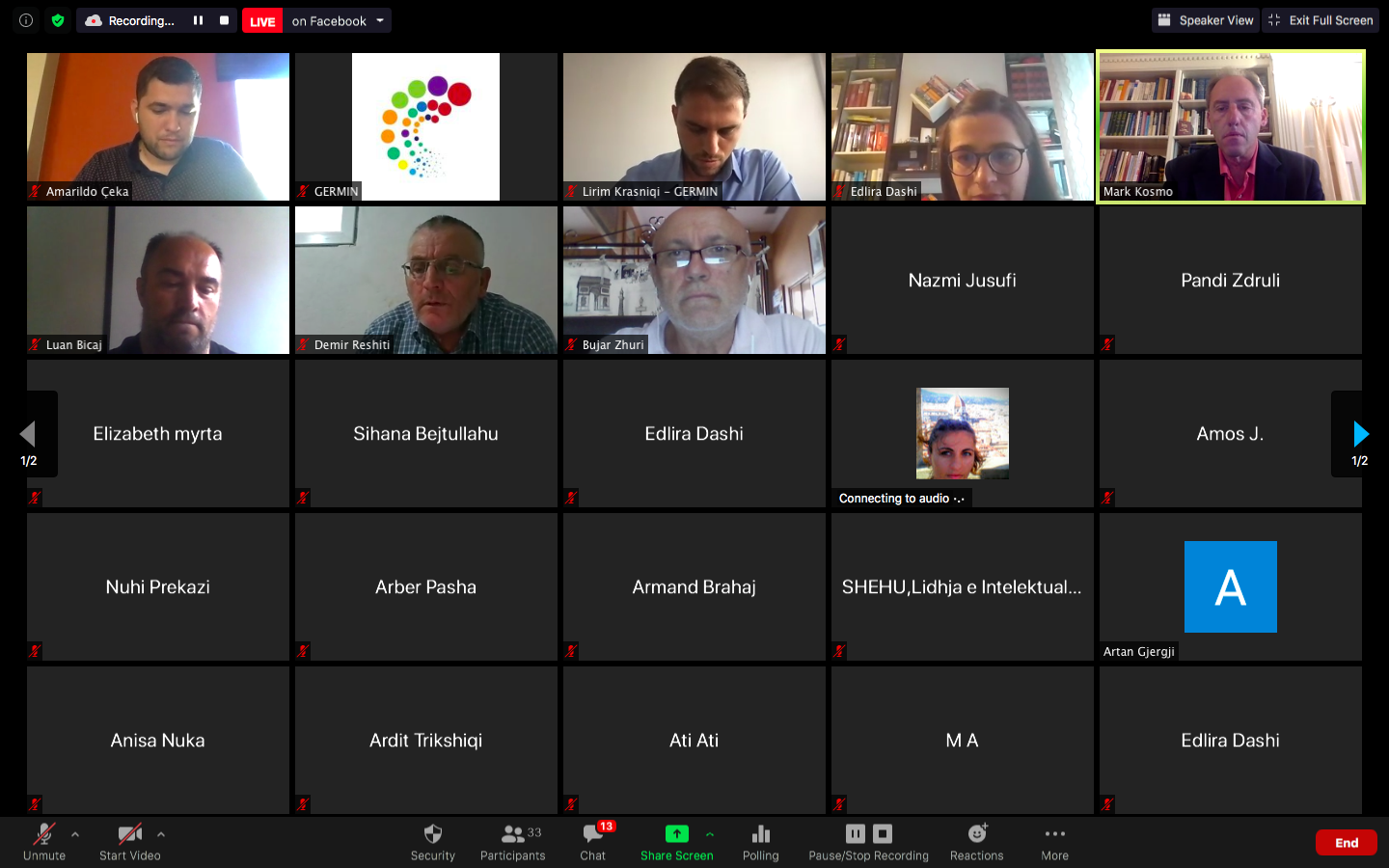
GERMIN in collaboration with the World Bank organized a series of events with the Albanian Diaspora around the world and financial sector experts in Albania to discuss challenges and opportunities related to remittances, as an important catalyst of economic development.
The series was developed in the context of Project Greenback, the financial education component of the Remittances and Payments Program (RPP), funded by the Swiss Secretariat of Economic Affairs (SECO) and implemented by the World Bank in partnership with the Bank of Albania.

